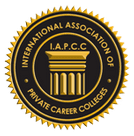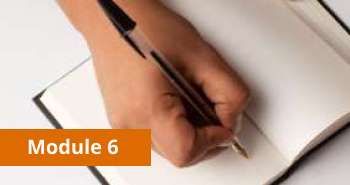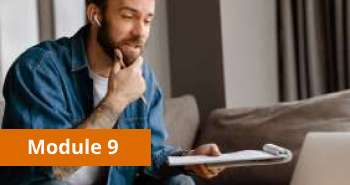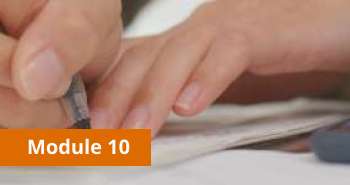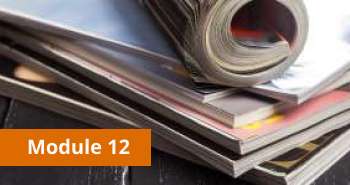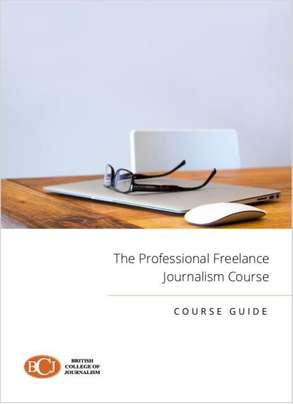Copyright © 2023 The British College of Journalism. All Rights Reserved | Terms & Conditions | Privacy Statement
The Professional Freelance Journalism Course
Always dreamed of writing? The British College of Journalism’s Professional Freelance Journalism Course may be just for you.
The Professional Freelance Journalism Course has been designed to provide you with the professional skills required to succeed as a freelance journalist. This online journalism course offers you a unique opportunity to develop the skills and knowledge required to be a professional freelance journalist or to indulge your passion for writing as a profitable sideline
Working directly with a current industry professional with a proven record of success as your tutor, you will learn all you need to know to start building your own successful freelance writing career.
15,000+
14+
80
Students
Years Training Successful Journalists
Countries and Territories
The Professional Freelance Journalism Course has been designed to provide you with the professional skills required to succeed as a freelance journalist. This online journalism course offers you a unique opportunity to develop the skills and knowledge required to be a professional freelance journalist or to indulge your passion for writing as a profitable sideline.
It will help to improve your writing and attention to detail, teaching you to write in a clear, concise, and engaging way. This will help you to create text that is easy to read and understand and to focus on your grammar, syntax, and vocabulary to ensure a well-written piece. Students will learn to craft concise and enticing copy for various purposes, just like what is taught in a copywriting course. This will be beneficial, especially for copywriting beginners.
It will teach you to come up with new and original ideas for content that will capture your audience’s attention. The creativity to develop fresh and engaging ideas is a fundamental skill of all journalists, who are always on the hunt for their next story.
Journalists need second-to-none-time management and communication skills. The structure and learning process undertaken through The Professional Freelance Journalism Course will simulate the relationship and techniques you will undertake while working as a content writer or copywriter.
It will provide you with the essentials of interviewing. You will be trained to ask questions that elicit informative and insightful answers, helping you to better understand your target audience and craft information that speaks directly to the reader’s needs and interests.
It will ensure you hone your research and fact-checking skills, so you can thoroughly research your topic before writing. This will help you gather and verify information about the product or service you’re writing about to provide you a strong understanding of the audience targeting, branding, and messaging. This will ensure information is accurate, credible, trustworthy, informative and, most of all, compelling for the reader.
It will guide you in how to be flexible and adaptable. Adapting to deadlines and applying different writing styles and tones is essential for good journalism, and the same applies to copywriters and content writers. You will need to be able to write for various formats, such as blog posts, social media posts, product descriptions, and more.
Fully Flexible And Online
No due dates or assignment deadlines, you work on the course at times that best suit you.
Recognition Of Studies
Obtain your Diploma and Media Pass.
Flexible Payment Options
Payment plans offered over three, and six months, or pay upfront and receive a £50 discount. Looking for a different payment schedule? Get in touch, we'll be happy to help.
12 Detailed Course Modules
Easy to use, detailed modules that become an invaluable guide for you long after graduation.
7-Day Money Back Guarantee
Should you decide this course is not for you, just get in touch by email within 7 days of your course start date to request your money back.
Personalised feedback on every assignment you submit from a successful journalist.
Personal Feedback From Your Tutor
Should you need to, you can take as long as one year to complete your course.
One Year To Complete
There’s no better way to set yourself up for success as a copywriter and content writer than by starting with the most fundamental skill - that is, to write well. A quality freelance journalism course, such as The Professional Freelance Journalism Course provided by the British College of Journalism, will help you to do just that.
Become a
content and copywriter
Download our course guide! It's extremely comprehensive and it will answer your questions about the course contents and course fees.
Course Content
Learn freelance journalism with us and be more confident in your skill set and services with content and copywriting!
BASICS OF FREELANCE JOURNALISM & WORKING FROM HOME
So, you want to be a freelance journalist? This introduction sets a solid foundation to the exciting and dynamic world of journalism. This tutorial will present the day-to-day realities of being a journalist, as well as debunking the myths of the industry. You will be introduced to what it means to work freelance, as opposed to full-time, as well as the implications these roles have. You will be given tips on setting-up a functional and productive work space and ethic, and how this works on the road. Tutorial one concludes with Assignment One.
THE MARKET PLACE & THE ARTICLE
Success in the industry comes in part by knowing the news stands and identifying markets. In this tutorial, you will be shown the different formats of publications that make the industry, as well as gaining an understanding of the differences between news, stories, features, profiles, reviews and columns, and you will learn what editors like. The tutorial ends with Assignment Two.
KNOWING YOUR CLIENTS & BUILDING A CV
In tutorial four we go through the chain of command and production cycle, starting with the editor and what they do. You will learn how to satisfy any editor, as well as how to develop relationships with sub-editors and using these to your advantage to sell and gain stories. You will begin to develop your portfolio, as well as learning everything you need to know about writing for lifestyle magazines. Tutorial four finishes with Assignment Four.
UNDERSTANDING GRAMMAR & SUB-EDITING
Tutorial three is back to basics, where you will look at the parts of speech, the importance of punctuation and the rule of modern language. You will be given tips on editing and re-editing your work and the growth that comes from an editor telling you to ‘have another go’. As well as this, you will learn to recognise when your article is finished and how to write a review. The tutorial ends with Assignment Three.
HOW TO GET FREELANCE ARTICLE IDEAS
This tutorial will help you find your ‘light bulb’ moment, as we explore where to find good ideas and turning them into great stories. You will learn seasonal story ideas, and how to place yourself in the front line of accessing potential stories. This tutorial will also cover how to write for music press. Assignment Five rounds off this tutorial.
WHAT MAKES A GOOD FREELANCE ARTICLE
Building on knowledge gained from tutorial five, tutorial six explored the finer points of turning a good story into a great story, exploring new angles to a story and picking the right angle. You will learn of the importance of research and multiple view points, and how to conduct effective research using many channels. This tutorial also explores everything you need to know about writing for women’s magazines.
HOW TO SELL AN ARTICLE
Tutorial seven begins with the all important pitch; how to pitch, and why timing is everything. You will learn about how to get your pitch in front of the right people, as well as the right and wrong ways to do the ‘hard sell’. This tutorial covers the uncomfortable topic of rejection, and how to bounce back from it. It takes a practical look at the business-end of freelance journalism, looking at contracts, rates and copyright, and the industry standards that determine these elements. You will also learn about writing for men’s magazines, as well photography and photo-journalism.
TAKING A BRIEF & THE BASIC RULES OF JOURNALISM
In tutorial eight, you will look at the brief, and the importance of sticking to it. It also covers writing to a deadline, and why deadlines are so important. Tutorial eight also covers journalism ethics, with a brief discussion on defamation, developing and respecting sources, and the importance of industry contacts. This tutorial looks further into travel writing, and how to write a fishing article, and computer and IT articles.
HOW TO WRITE AN ARTICLE – PART ONE: THE BASICS
Tutorial nine is the first in a two-part series on how to write an article. Beginning at the basics, you will look at understanding the client and the audience, as well as the rules of reporting (the who, what, where, when and why). You will learn how to make structure simple by understanding the structure pyramid. You will also learn the importance of the lead, and what the lead should contain, as well as how to use direct and indirect quotes, references and how to end a story. This tutorial concludes with Assignment Six.
HOW TO WRITE AN ARTICLE – PART TWO: WRITING STYLE
In the second part of ‘How to Write an Article’, you will look at writing in the active voice, as well as setting tone and tense, and sticking to it. You will learn how to build a story and letting it flow, while removing redundant words, platitudes and clichés. You will learn that competent writing is good writing.
THE INTERVIEW
Tutorial eleven explores how to set up, and conduct interviews, as well as the finer points of interviewing, interview techniques and how to get the most out of a short amount of interview time. You will learn how to make technology work in your favour as a freelance journalist, as well as how to work as a roving reporter. This tutorial concludes with Assignment Seven.
FREELANCE ASSIGNMENTS THAT PAY
To conclude this online freelance journalism course, you will look at why niche publishing is so important to a freelancer, as well as how to write and sell to these niche markets. Tutorial twelve looks at the various niche markets and discusses the potential markets that are often overlooked. On the business end of being a freelancer, this tutorial offers a checklist for running your freelance business, and factors such as taxation and accountancy. This tutorial offers a valuable list of contacts, associations and resources to set you on your way. This tutorial ends with your final assignment.
Establish a full or part-time career as a content and copywriter.
Open the door to a world of opportunity!
Journalism skills are an asset for any copywriter and content writer to ensure they write informative and engaging content for their clients. The Professional Freelance Journalism Course will help you become a better content writer and enhance your copywriting skills in several ways:
Read what our graduates say
The British College of Journalism is proud to have assisted many people to success or to have played a part in them developing a niche career for themselves.
Establish a full or part-time career as a content writer and copywriter.
Open the door to a world of opportunity!
“I am fortunate to be published now and have had my work used by Sky Sports and Boxing News Magazine, as well as having a regular opinion piece on a boxing website … I still pinch myself that someone will pay for my thoughts and views on a sport I love and it may not have happened without this course.”
Jon B
"I have now completed a number of residential projects from luxurious high end elegant homes to more relaxed beach side residences in Jersey, and sharp contemporary apartments."
Gina T.
“The course was invaluable in my getting the article published as it gave step-by-step detailed information in each tutorial... I would definitely recommend this course to anyone interested in freelance journalism. The support has been brilliant and has given me invaluable skills to further my journalism career.”
Sandra B
Your Course at a Glance
The Professional Freelance Journalism Course has been designed to provide you with the professional skills required to succeed as a content and copywriter.
Download the free course guide! It's extremely comprehensive and it will answer your questions about the course contents and course fees.
The Ultimate Guide To Becoming A Professional Freelance Writer by The British College of Journalism is FREE for a limited time only. Take advantage and get the FREE eBook along with the course guide now!
Take The First Step To Become A Professional Freelance Writer
The British College of Journalism
The British College of Journalism is a division of International News Syndicate LTD. Our directors and principals have been involved in all aspects of media work, training and distance education for some 30 years.
The British College of Journalism is a division of International News Syndicate LTD. Our directors and principals have been involved in all aspects of media work, training and distance education for some 30 years.
Through online course delivery and email communication, the College is able to assist you every step of the way.
Content and Copywriting
Copywriting, content writing, and journalism share common requirements, primarily that is the ability to write compelling and informative copy.
Copywriting is focused on creating persuasive content for marketing and advertising purposes and encourages the reader to take a specific action, such as make a purchase, sign up for a service, or fill out a form (think ad copy, product descriptions, sales pages, and other types of short-form content). Content writing generally refers to writing informative and educational content to provide value to readers (think whitepapers, eBooks, and other types of long-form content).
While both types of writing involve creating content, content writing focuses on providing information, while copywriting focuses on persuading the reader to act. The common core feature of both writing styles is that the copy must be written well.
Readers are more empowered than ever to find what they’re looking for (thank you, Google gods), and the drive to research a topic further is second nature for most. This means that, as soon as a reader is aware of a discrepancy; or sees through your text as sales speak, trust is undermined, and the reader will likely look elsewhere for what they need.
Journalism is primarily focused on reporting news and events in an engaging, factual and objective manner. With online audiences being more informed than ever, engaging the reader in a factual and objective manner is the critical element required for good copy and content writing.
Copywriters and content writers with journalism skills can confidently conduct research, gather information, and write clearly and concisely. They also understand the importance of accuracy, fact-checking, and using credible sources, ensuring the quality of the text provided.
Journalism skills can also assist the writer to write in a more conversational and engaging tone, helping to capture and hold the reader's attention better than simply providing a list of facts and figures.
The Professional Freelance Journalism Course
This freelance journalism course has been specifically designed for you to achieve success in the UK freelance writing market.
Many leading UK writers and editors have contributed to this course to bring you their wealth of knowledge about writing for UK media and international markets. The personal tutor you will be assigned to assist you throughout this online freelance journalism course is a working UK media professional with in-depth knowledge of the freelance writing markets that most interest you.
This is a cutting-edge course with the best writers and editors contributing to give you all you need to know about how to become a successful journalist and writer. This covers three broad areas:
- How to come up with story ideas that are practical for you.
- How to develop these into competent and saleable pieces of writing.
- How to market your finished material for profit.
What you will learn
No matter what the subject matter of your article is, the same basics apply to making that article factual, readable and interesting. Each of these areas is comprehensively covered within your course.
Get your course guide & free mini-tutorial
Complete the form below to receive your free course guide and course updates by email.
Get your course guide & free mini-tutorial
Complete the form below to receive your free course guide and course updates by email.
GET YOUR FREE COURSE GUIDE & EBOOK
Complete the form below to receive your free course guide and course updates by email.


